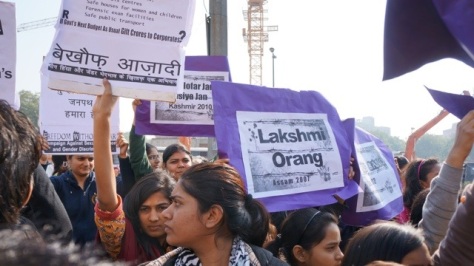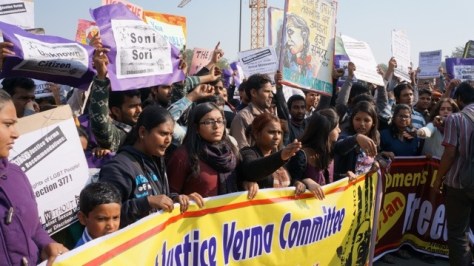This is a revised version of an article that appeared in Seminar January 2014.
The past year is bookended by two extraordinary moments, both of them inspired by the courage and determination of young women who refused to take sexual violence as routine.
December 2012 – a young paramedic fought till her last breath for justice.
November 2013 – a law intern exposed the sexual assault she faced from a retired Judge and a Tehelka journalist taught Tarun Tejpal a long deferred lesson – No Means No.
The massive mobilization of public opinion around these incidents has reopened the question of ‘agency’ in familiar and unfamiliar ways.
Feminists have long asserted women’s agency in contexts of sexual violence by attempting to desexualize rape – in law and in everyday life. Taken out of patriarchal discourses of honour, rape is merely an act of violence that violates bodily integrity. This delicate balance between two opposing notions – on the one hand, that sexual violence has a distinctive character, it is more humiliating, more paralyzing than physically less harmful actions; and on the other, that sexual violence is merely another kind of physical violence – this is the razor’s edge occupied by feminist understandings of rape. Continue reading The Conundrum of Agency in Sexual Violence


